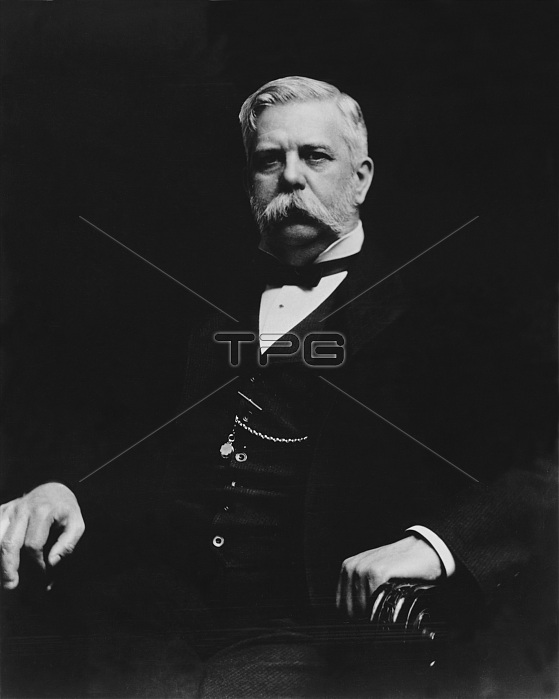
George Westinghouse, Jr. (October 6, 1846 - March 12, 1914) was an American entrepreneur and engineer who invented the railway air brake and was a pioneer of the electrical industry. Westinghouse was one of Edison's main rivals in the early implementation of the American electricity system. Westinghouse's system ultimately prevailed over Edison's insistence on direct current. In 1893, the Westinghouse company was awarded the contract to set up an AC network to power the World's Columbian Exposition in Chicago, giving the company and the technology widespread positive publicity. He also received a contract to set up the first long-range power network, with AC generators at Niagara Falls producing electricity for distribution in Buffalo, New York, 25 miles away. He also developed steam turbines for maritime propulsion. He remained productive and inventive almost all his life. With the introduction of the automobile after the turn of the century, he went back to earlier inventions and devised a compressed air shock absorber for automobile suspensions. He died in 1914, at age 67. As a Civil War veteran, he was buried in Arlington National Cemetery.
| px | px | dpi | = | cm | x | cm | = | MB |
Details
Creative#:
TOP22151739
Source:
達志影像
Authorization Type:
RM
Release Information:
須由TPG 完整授權
Model Release:
No
Property Release:
No
Right to Privacy:
No
Same folder images:

 Loading
Loading